These are all of the things in your home that you shouldn't be cleaning with vinegar
*Puts the spray bottle down*

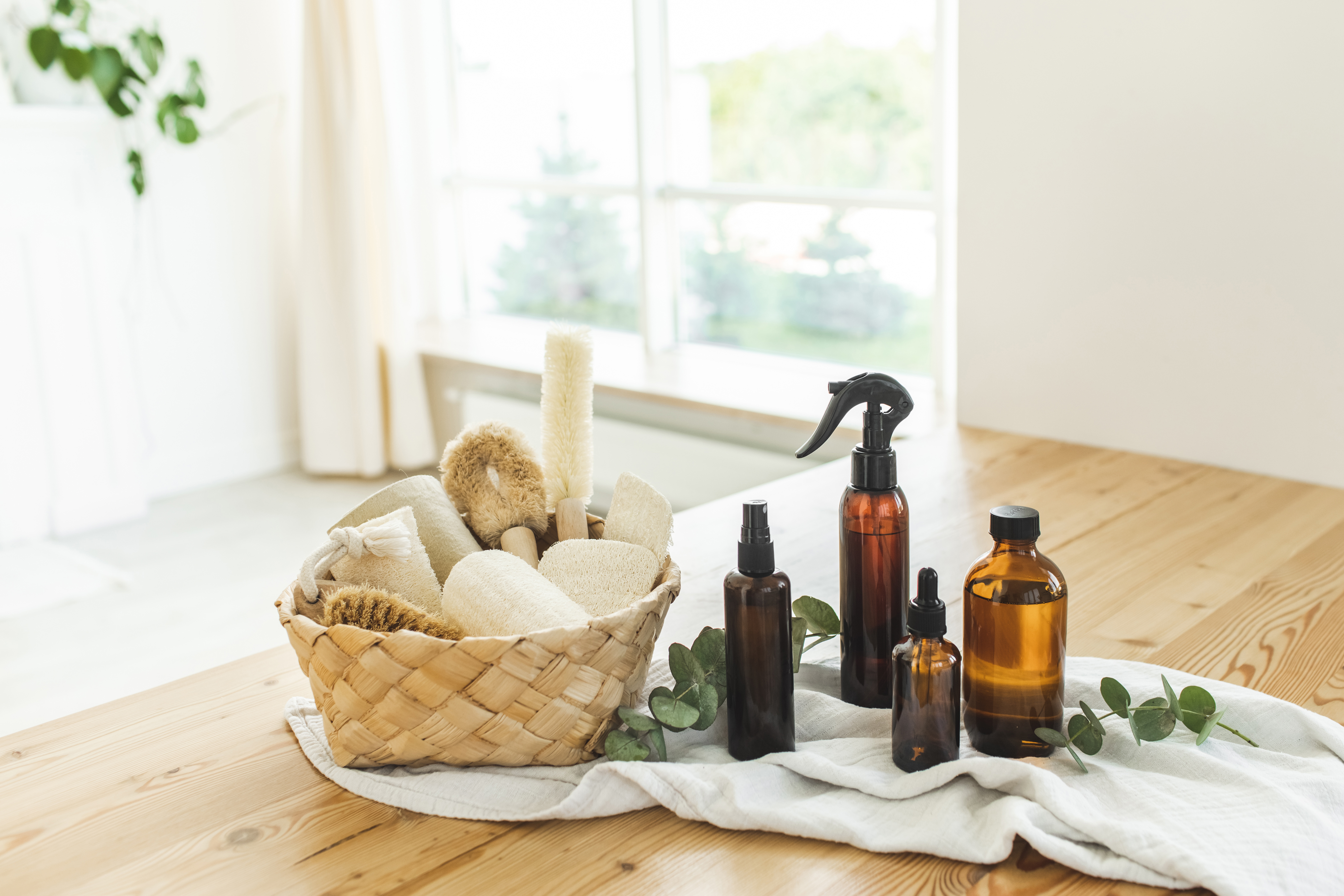
Vinegar is hailed as the super versatile, non-toxic cleaning solution that can tackle pretty much any mess. Yes, there are so many ways to use vinegar to clean your home, but it’s not actually safe for use on every single surface FYI. I mean, who knew? Anyone?
I always assumed vinegar could be used for practically anything — from cleaning your windows to scrubbing your floors — but it turns out that isn’t the case. And, FYI, I’m as shooketh as you. Just Google "white vinegar for cleaning" and you’ll see hundreds — if not thousands — of articles on all the best ways to clean with vinegar. And, the same goes for TikTok. Head over to #CleanTok and you’ll stumble across video after video hailing white vinegar as some kind of cleaning god. So, it’s easy to see why so many of us think of vinegar as our cleaning go-to.
But do a little digging and you’ll find that while white vinegar works wonders on certain cleaning tasks (dirty windows, we’re looking at you), there are other things that vinegar should never be used for. If you're someone who swears by vinegar for cleaning, then you don't want to miss this list. We've asked cleaning and home experts to name the things in your home you should never clean with vinegar — and what you should use instead.
Why can vinegar be detrimental?
Vinegar might be touted as a seriously great cleaning tool with as much power as Mr. Clean himself, but there are some circumstances where it’s best to put the vinegar down and reach for a properly formulated cleaning solution instead.
Sometimes, vinegar just isn’t up to the job — such as if you’re cleaning a seriously greasy surface. Other times, vinegar is too acidic for a surface and may cause damage. That’s why knowing what not to clean with vinegar, as well as what you can clean with this non-toxic formula, is worth it.
What not to clean with vinegar
It's some select surfaces and materials that absolutely shouldn't be cleaned with vinegar. We're not just talking about vinegar being ineffective in these instances, but it can actually be harmful.
1. Natural stone
Want to know how to clean countertops? If yours is made from granite or marble, then make sure that whatever it is you use, it's not vinegar. "Vinegar has a pH value of 2.4, making it highly acidic," point out the cleaning experts from Molly Maid. "Even diluted, it can etch natural stone. Makers of stone countertops and floor tiles strongly advise against using it on their products."
Get small space home decor ideas, celeb inspiration, DIY tips and more, straight to your inbox!
The acid of the solution can etch and dull natural stone; reducing shine and leaving patches of scarring. Vinegar is also problematic because it can break down sealants that have been applied to the material, putting them at risk of water damage.
Basically, if it's natural, don't use vinegar — just stick to warm water and a mild soap like Dawn. Porcelain and quartz are fine to clean with vinegar, however.
2. Sealed hardwood floors
By sealed we mean coated with wax. I'm constantly seeing people add a shot of vinegar to their floor cleaning solution or a mop bucket, and the results are normally sparkling. But, if you have hardwood (or stone) floors, it’s not recommended to use vinegar to clean them. In fact, using vinegar on a hard floor can be so detrimental to flooring that if there are signs that vinegar has been used to clean the floor, the warranty will be voided. The issue is that vinegar — even when diluted — can cause the protectant seals to dissolve or leave the floor itself looking cloudy and scratched.
Cleaning expert and founder of Steam Clean Queen Emma Barton has a strong warning for anyone who wants to clean their wood floors with vinegar: "Be prepared to write a check in thousands of dollars for the repair," she says. "Chemicals used to produce the wax coating crumble and decompose under vinegar. It leaves white patches on the flooring, unsettling to look at." Yikes. Again, stick to mild soap and water, or a dedicated wood floor cleaner.
3. Egg spills
"Never use vinegar on an eggy mess," says Molly Maid. "The acidity will cause it to coagulate and become even more difficult to clean." If you've spilled egg on the floor, just mop it up with a paper towel and remove any remnants with an all-purpose cleaner, we love the one from Mrs. Meyer's Clean Day.
4. Your coffee machine if you have purchased a warranty
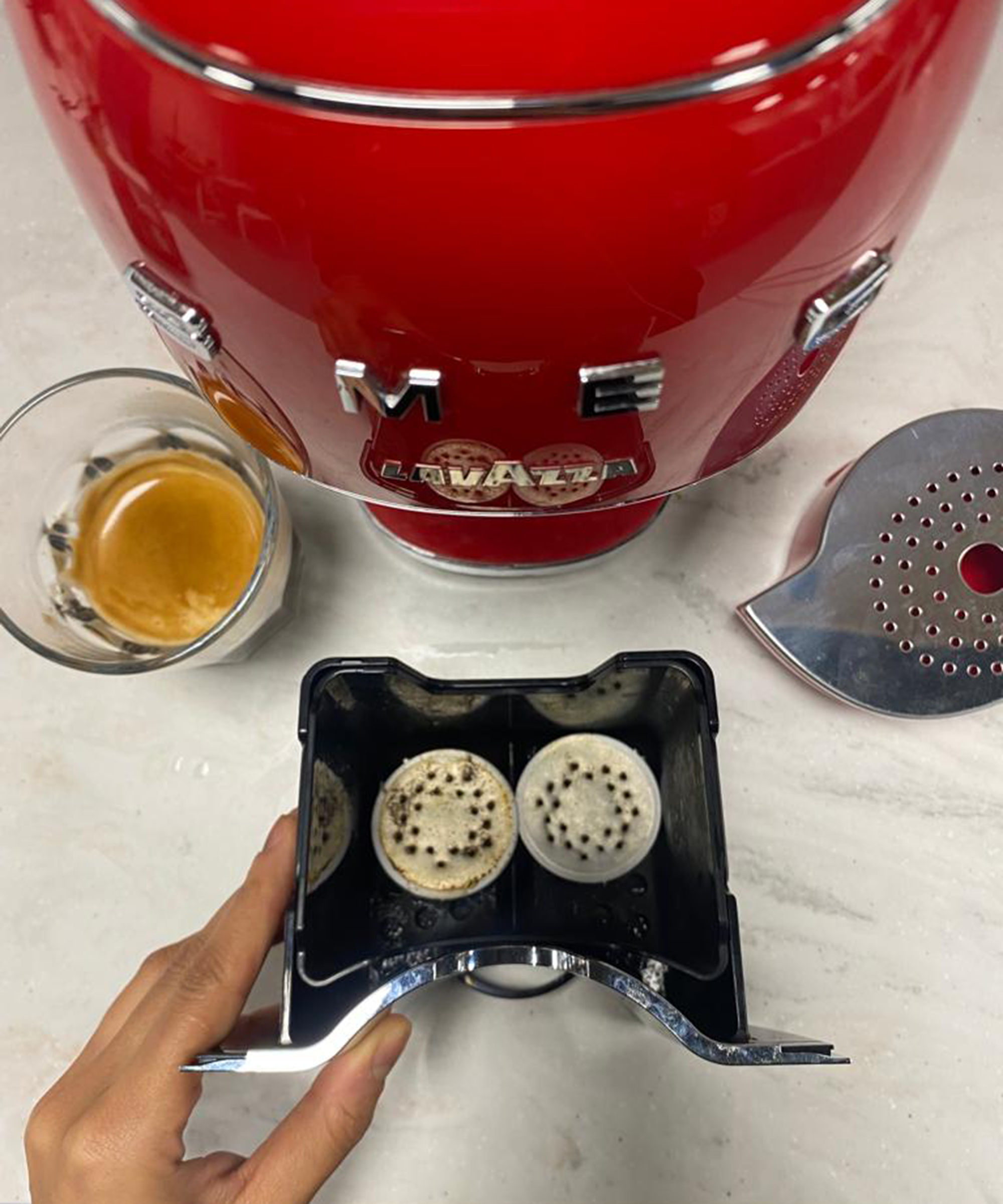
You may have heard that vinegar is great for descaling your coffee machine. That is true, and many people swear by cleaning their coffee machines with vinegar. However, Oli Baise, the founder of coffee blog Drinky Coffee warns coffee lovers that "if your manufacturer knows that you have used vinegar to clean your machine the warranty will be voided."
Instead, stick with a special-made cleaning solution and double-check your warranty and Ts and Cs. "If you have purchased a machine with a warranty — I know Nespresso upsells 24-month warranties, for instance — then it's worth opting for specialized descaler rather than using vinegar."
5. Freshly painted wood
If you've recently finished a DIY furniture painting project, don't clean said furniture with vinegar. "If you apply vinegar to painted wood, the vinegar will soften the paint and the paint will peel off after a while," says Tony Adams a painter and co-chief editor for DIYgeeks.com. "It takes vinegar 10 minutes to fully dissolve water-based paint, while it takes up to 30 minutes to fully dissolve oil-based paint. The vinegar can also discolor the wood if it's not heavily diluted with water."
Painted wood on features like kitchen cabinets can be cleaned with dish soap and water.
6. Wool rugs
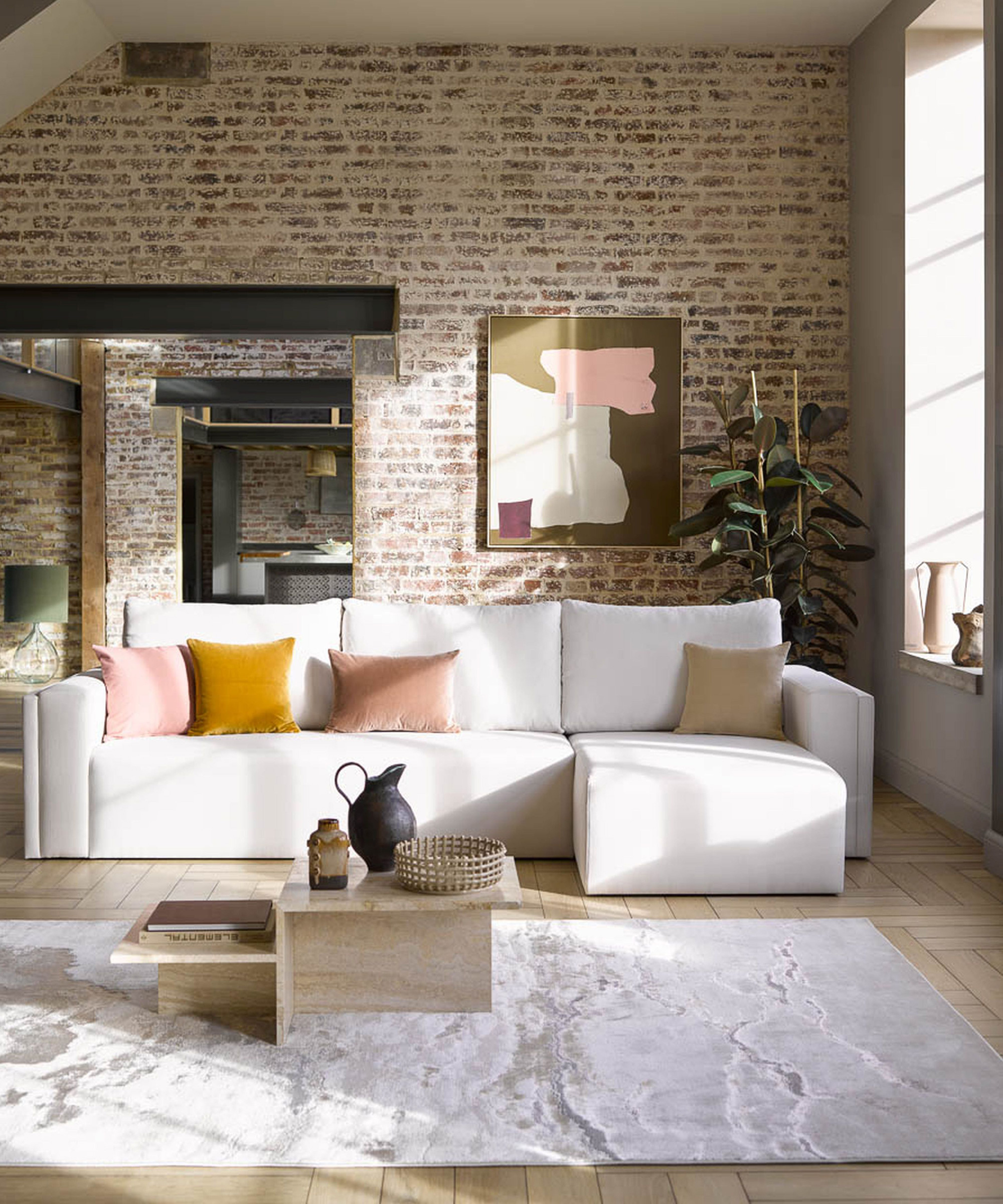
Spent a hefty sum on an on-trend rug? If it's made from real wool, do not clean it with vinegar. Ben Hyman, the Co-Founder and CEO of Revival Rugs, says he wouldn't risk it. "The acidity could permanently damage the fibers," explains Hyman. "Instead, I would blot the spill up and then use a small amount of clean water and blot some more. If the stain is persistent, you could use a small amount of dishwashing soap mixed with water. If all else fails, get your wool rug professionally hand-washed."
Needless to say, vinegar also shouldn't be used on sheepskin rugs for the same reasons.
7. Kitchen knives
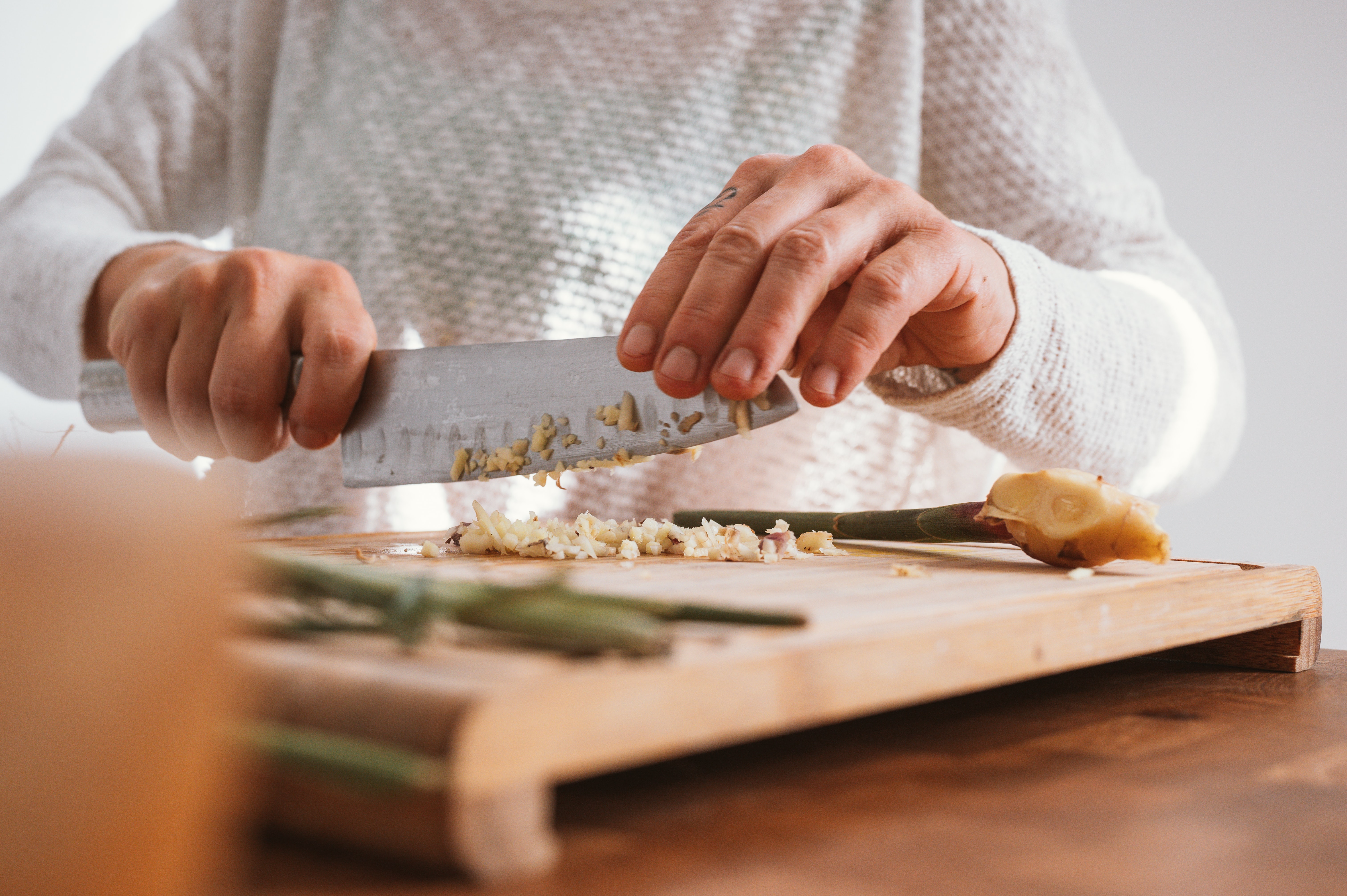
A set of kitchen knives can cost a lot, so you don't want to ruin those gorgeous sharp blades with vinegar. Lily Cameron, a domestic cleaning expert at Fantastic Services, says that "the acidic properties of white vinegar can cause corrosion to the metal blades and dull the knife’s edges." She says to instead opt for "washing them with warm water and soap and thoroughly drying them afterward."
8. Electronic screens
It’s easy to assume that vinegar would be a great screen cleaner, especially since works so well when it comes to leaving windows streak-free. But it’s not recommended for use on electronic screens (think: computers, smartphones, tablets, and TV sets) as it can damage these delicate surfaces, reducing their anti-glare properties and any protective layers, making touch screens less responsive and safe. Unless you can afford to replace all your favorite tech, it's probs best to steer clear of vinegar.
Cameron says, "It’s best to use a microfiber cloth and a specially formulated cleaner for electronic screens."
9. Appliances with rubber parts
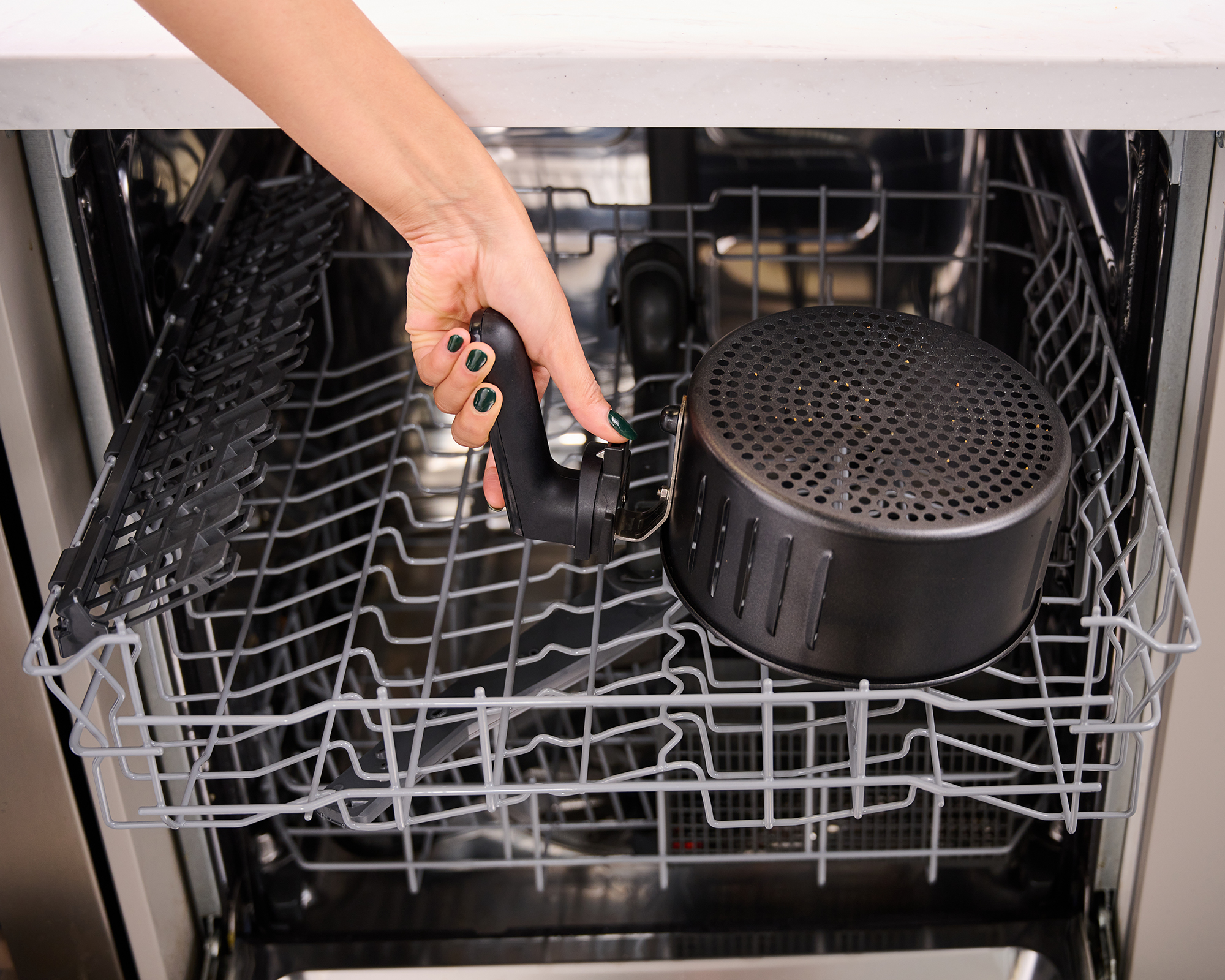
Did you know that white vinegar can ruin the integrity of rubber? Any appliance that has a rubber seal needs to be clean of course, but try to avoid using vinegar on these parts. Over time it can start to break down the material and ruin its effectiveness — and no one wants to deal with a broken dishwasher or fridge.
10. Cast iron or aluminum pans
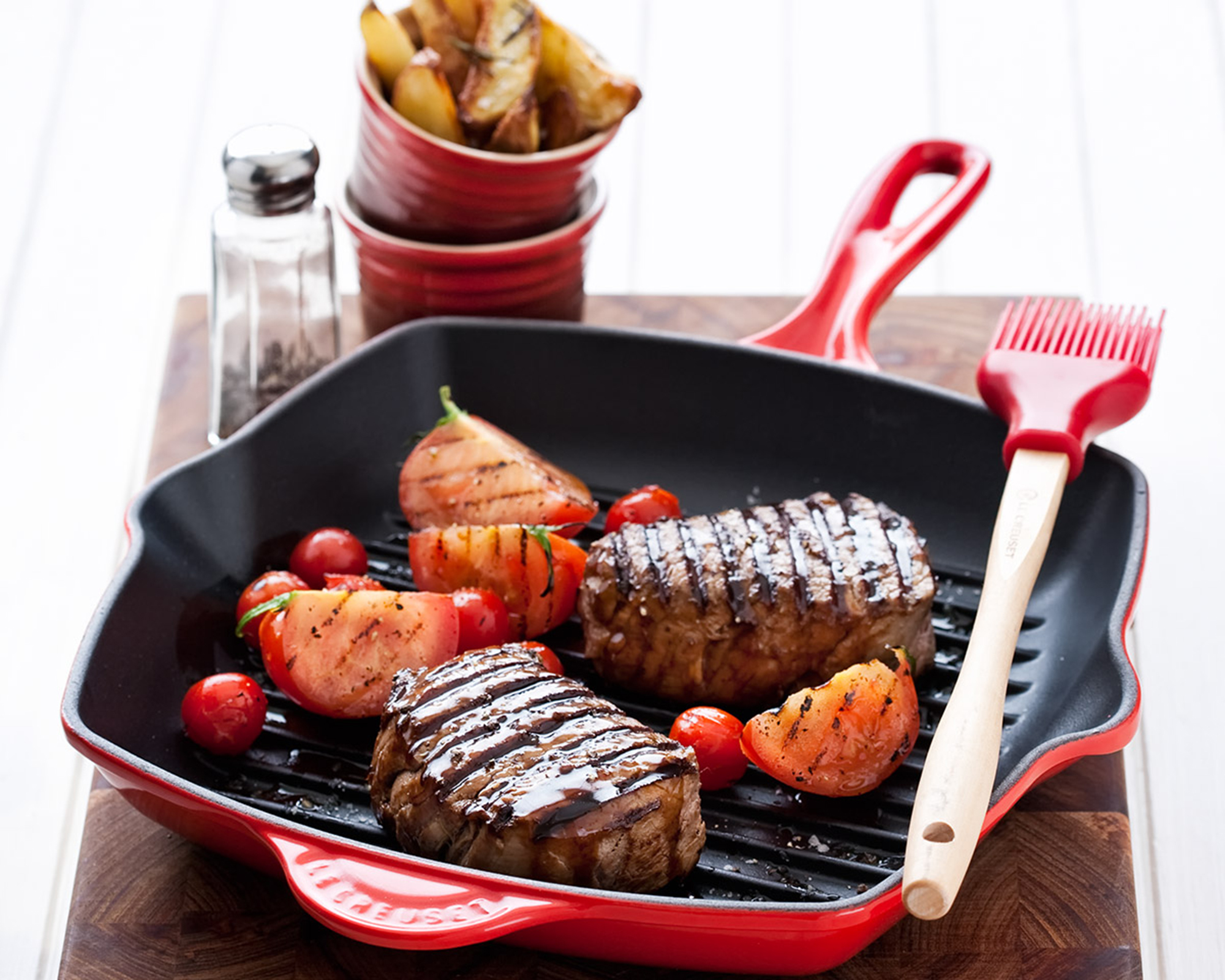
Last but not least, if you've spent hundreds on your cast iron skillet or quality aluminum pots, do not ruin them with vinegar. Paul Moody, home cleaning expert and the Founder of Pro Mover Reviews, warns that aluminum and cast iron can have issues handling certain acids. "With iron, the acetic acid in vinegar causes an exothermic reaction that causes heat and removes the protective coating on the metal and makes it susceptible to rust," explains Moody. "When aluminum reacts with vinegar, it creates aluminum acetate, which is soluble. When you scrub the surface of the pan with vinegar, the aluminum will slowly be eaten away."
Instead of using vinegar, Moody notes that sticking with good ol' water is the best solution with a bit of soap if necessary. Once you've finished cleaning your cast iron skillet, you will need to reseal it with an oil (linseed or rapeseed works well).
11. Your iron
To give your iron’s tank a good clean, you might think that a squirt of vinegar is the answer, but it can actually cause damage to the inside of the tank. You see, most irons contain a protective inner coating that the acid from the vinegar can corrode, causing damage and impacting usability.
Vinegar is still brilliant — just not for every single thing in your home! Avoid using it on these surfaces and you will avoid costly replacements and repairs.
Here's are some things we would suggest using vinegar to clean:
- Descale your kettle with vinegar
- Clean your fridge with vinegar
- Clean your showerhead with vinegar
- Clean a stainless steel sink with vinegar
Anna is a professional writer with many years of experience. She has a passion for contemporary home decor and gardening. She covers a range of topics, from practical advice to interior and garden design.